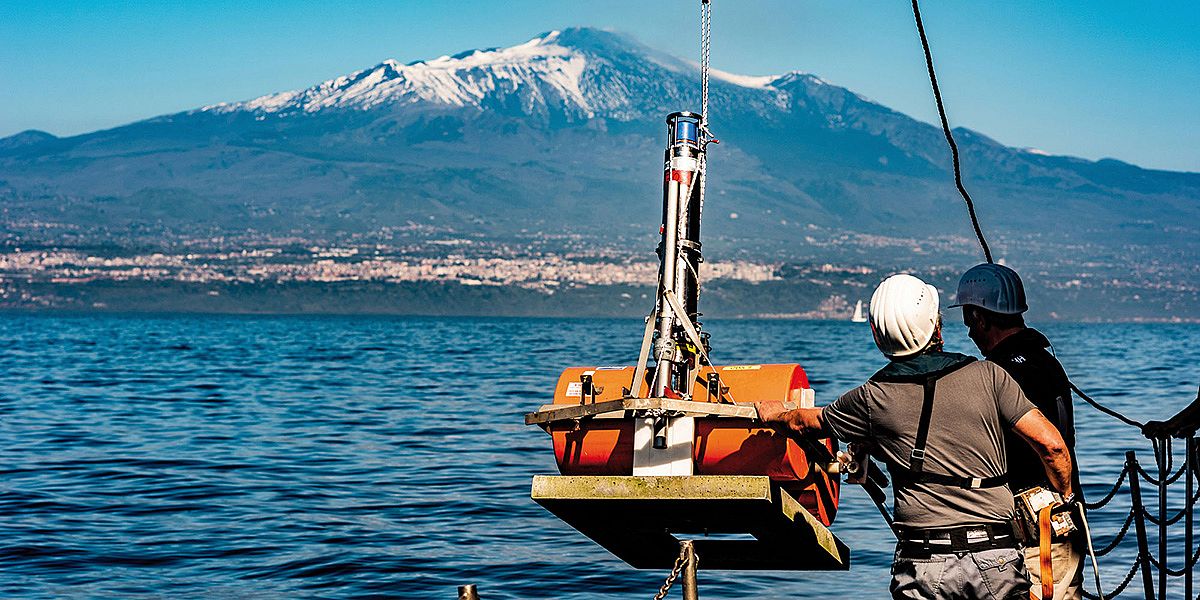Since its establishment in 1990 the department of Marine Geodynamics has become a world leader in marine geophysics with an emphasis on subduction zone processes. We investigate these processes on all geological scales and in close collaboration with our colleagues in volcanology and geochemistry. During the past 10 years we have broadened our portfolio by moving away from subduction zone processes and into new fields such as fluid migration in passive margins, geohazards and seismic oceanography.
These days we are working on question as diverse as:
- Will climate change be accelerated through geological feed-back mechanisms?
- How can we predict submarine landslides in the future and design suitable tsunami warning systems?
- How does energy dissipate in the ocean?
- How do earthquakes change the coupling between tectonic plates?
- How does seismicity develop over an earthquake cycle?
- Does seafloor deformation hold information on the hazard potential?
Scientists of the department are researching in the following working areas to find the answers of these questions:
- Fluid Flow in the Lithosphere
- Plate Tectonics
- Submarine Hazards
- Seismic Oceanography



